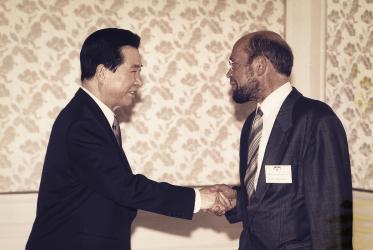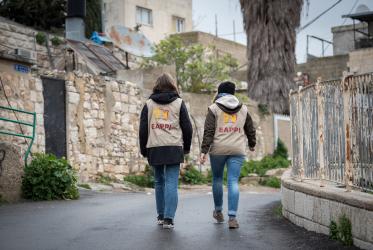Displaying 1 - 20 of 121
Voice of churches vital during UN women’s rights talks
28 March 2024
Was können Kirchen unternehmen, um moderne Sklaverei zu verhindern?
26 February 2024
What can churches do to prevent modern slavery?
22 February 2024
Ellyanne Chlystun-Githae Wanjiku to COP28: “listen more to children”
13 December 2023
„Die Menschen wollen ohne Angst und ständige Übergriffe leben“
31 October 2023
„Besetzung kann nicht ewig dauern“
29 October 2023
A Guide for Churches on the Prevention of Obstetric Fistula
26 October 2023
“The occupation can’t last forever”
25 October 2023
“They want to live without fear and constant harassment”
25 October 2023
Kids Feel Safe Going to School when EAs are Present
23 October 2023













